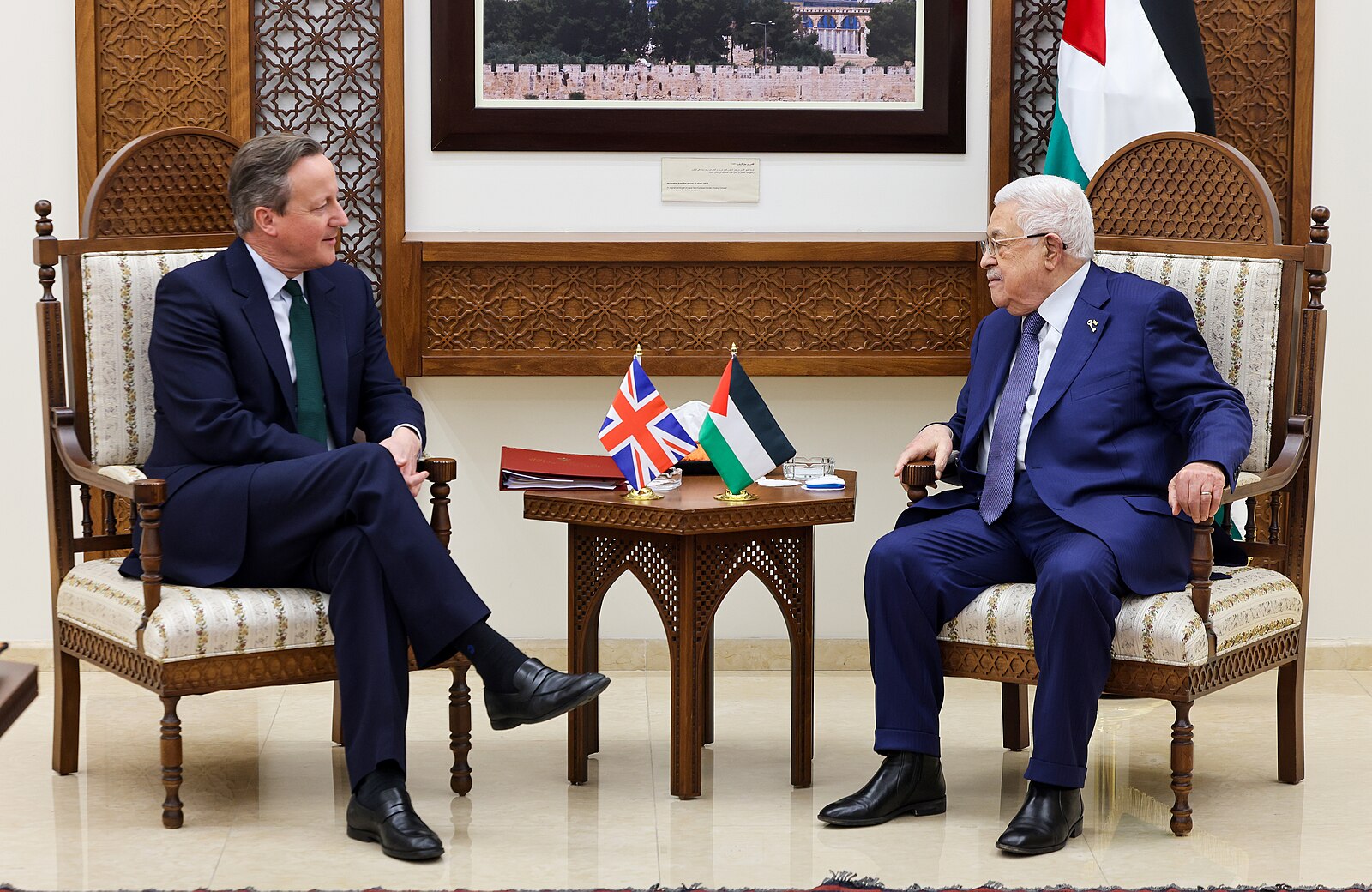David Cameron’s hinting at supporting Palestinian statehood was welcomed by Palestine’s Ministry of Foreign Affairs.
During a meeting held on Monday, Britain’s Foreign Secretary, David Cameron, told members of the Conservative Middle East Council that the UK and allies were considering recognising an independent Palestinian state.
According to the former prime minister, this is part of a diplomatic push geared towards initiating an “irreversible progress” towards an end of the aggressor’s hostilities, the Financial Times (FT) reports.
“As that happens, we – with allies – will look at the issue of recognising a Palestinian state, including at the United Nations. This could be one of the things that make this process irreversible,” he added.
At present, Britain’s government doesn’t recognise an independent state of Palestine.
In 2021, the UK’s Foreign, Commonwealth and Development Office (FCDO) said that the government will “recognise a Palestinian state at a time of our choosing, and when it best serves the objective of peace.”
Britain’s Arthur Balfour was a key figure in the would-be establishment of a “promised national home” for Jewish people.
Approximately 13,000 Palestinians were killed and a further 750,000 were expelled from their homes following the 1948 creation of Israel.
This mass expulsion and ethnic cleansing of Palestinians from their ancestral homeland is known as the “nakba,” or catastrophe.
At least 531 Palestinian villages were also destroyed in this process.
A ‘historic’ development
According to Husam Zomlot, the head of the Palestine Mission to the UK, the latest comments from the Foreign Secretary are “historic.”
“It is the first time a UK foreign secretary considers recognising the State of Palestine, bilaterally and in the UN, as a contribution to a peaceful solution rather than an outcome,” the Palestinian diplomat told the FT on Tuesday.
Palestine’s Ministry of Foreign Affairs also welcomed Cameron’s comments.
In a communique published on Tuesday, Palestine’s Foreign Ministry said that if Palestine were to gain full membership within the UN, that would oblige the aggressor to “engage in a peace process and real negotiations that would lead to the embodiment of a unified Palestinian state”.
The communique also added that Palestinians are under occupation on all fronts in the West Bank and Gaza.
Since Israel renewed its violent expansionism into Gaza on October 7, Palestine’s Health Ministry has reported that 26,751 Palestinians have been killed. Over 11,000 of the casualties are children. A further 65,636 people have been left injured.
Palestine’s Foreign Ministry concluded that pressure from the international community, in the form of pushing for an independent Palestinian state was necessary to, “stop the war, protect Palestinian civilians, secure their basic humanitarian needs […] and enable the Palestinian people the right to self-determination”.
Upcoming Middle East tour
Tuesday also saw the FCDO announce that Cameron was set to return to the Middle East for the fourth time since becoming Foreign Secretary.
According to the Foreign Office, the first leg of his upcoming tour will begin in Oman, while the other destinations haven’t been announced yet.
During his last visit to Qatar on January 25, Cameron met Qatar’s Amir Sheikh Tamim bin Hamad Al Thani, Qatar’s Prime Minister and Foreign Minister Sheikh Mohammed bin Abdulrahman Al-Thani.
He also met his Qatari counterpart, Lolwah bint Rashid Al Khater, the Minister of State for International Cooperation.
In Qatar, he saw British and Qatari humanitarian cooperation firsthand when he witnessed the loading of 17 tonnes of tents at the Al Udeid Military Base before its departure to Egypt’s El Arish before entering Gaza.
As quoted by the FCDO, Cameron said, “The scale of suffering in Gaza is unimaginable. More must be done, faster, to help people trapped in this desperate situation”.
However, as was revealed on January 10 by the World Health Organisation’s Director General, Dr Tedros Adhanom Ghebreyesus, since December 26, six planned medical missions to northern Gaza had to be cancelled.
Despite the dire need for aid, Dr Ghebreyesus said that “delivering humanitarian aid in Gaza continues to face nearly insurmountable challenges.
“Intense bombardment, restrictions on movement, fuel shortages, and interrupted communications make it impossible for WHO and our partners to reach those in need,” he added.







